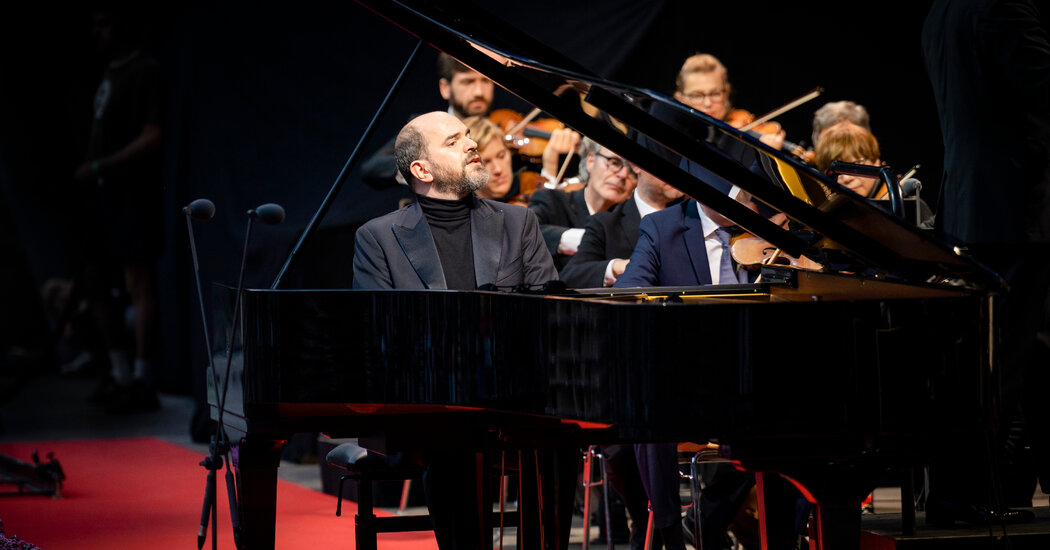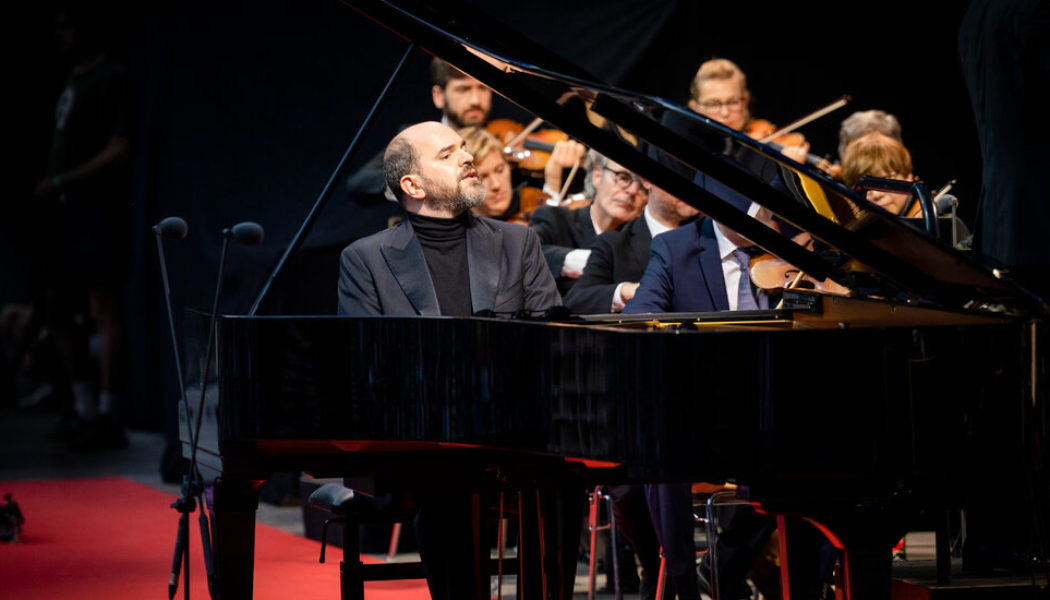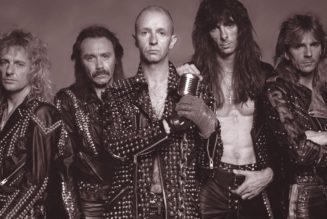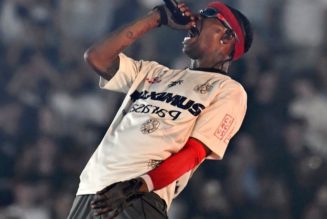
Kirill Gerstein, who has recorded a new account of the Second Piano Concerto with the Berlin Philharmonic, discusses the composer’s polarizing legacy.
BERLIN — What should we think of Sergei Rachmaninoff 150 years after his birth?
His music remains immensely popular with both artists and audiences, a draw for its deeply felt and grandly expressed emotions, and for its sensational virtuosity. Yet Rachmaninoff isn’t likely to top any lists of great composers; during his lifetime and since, his reputation has been that of a sentimentalist and nostalgic who was guilty, worst of all, of being an outlier in classical music’s embrace of modernism.
In an interview at his home here, the pianist Kirill Gerstein recalled being told that anniversaries are “a lazy man’s programming guide.” Still, he said, now is “as good a time as any” to re-examine Rachmaninoff’s life — one uprooted by the Russian Revolution and rapid change, leading to music that, as the historian Rebecca Mitchell has argued, is undeniably a product of modernity even if it rejects modernism’s “glorification of innovation for its own sake.”
“The music is here to stay,” said Gerstein, who this month is releasing an account of Rachmaninoff solo works and the Second Piano Concerto, with the Berlin Philharmonic under Kirill Petrenko. “Let’s take it seriously not just as music produced by a virtuoso but also a serious composer. We’re tried various ways of dismissing it, and it’s not going away, so possibly we can say: Well maybe it’s not just because it’s pretty and it’s popular, but because it has a real core of aesthetic value.”
Gerstein’s new album, which is being released incrementally on the Philharmonic’s in-house label beginning April 14, makes a strong case for that idea. In addition to the concerto, a brisk and detail-oriented account that shakes off some of the inflated grandeur it has accumulated over the years, the recording charts Rachmaninoff’s career from early works — starting with the “Mélodie,” from 1892, and Gerstein’s transcription of the song “In the Silence of the Secret Night” — to “Liebesleid” and the late “Variations on a Theme of Corelli,” written in 1931.
In the interview, Gerstein discussed these pieces and how they could guide an understanding of Rachmaninoff today. Here are edited excerpts from the conversation.
First, where do you stand on Rachmaninoff’s place in music?
He is one of the most often performed composers, contrary to what was promised by a lot of his critical contemporaries. Those that don’t like him say, “Look, he is this anachronistic composer totally lost in the 20th century, and he doesn’t come along with the age of modernism and is therefore not good.” At the same time, you have those very well-meaning defenders that say: “Actually, look at the ‘Symphonic Dances’ and the late pieces. He’s evolving and is indeed a very good composer.”
At times you could say there is a reaction of retrograde tendencies or nostalgia. But nostalgia being such an important quality is a 20th-century, modern thing, and I think we are continuing to live out the reverberations of that. Maybe he’s not a modernist, but he is quite modern, an example of an artist who tries to deal with this sort of rush of challenges that life presents him artistically, socially, psychologically, historically. And there, he’s very relatable and does so without really joining or spearheading any movement.
When I think of his music, one of the words that flashes in my mind is sincerity. The passions seem grand, and it takes a lot of courage and sincerity not to tuck them under this or that stylish cloth, or intellectual movement.
How does that all guide your interpretations on this album?
I thought about some of those things in preparation for, and during the recording. One of the things that casts a shadow over all of us pianists is that he was both a great composer and a great performer. With the Second Piano Concerto, we have two fabulous recordings by him, with Leopold Stokowski, and at the same time we have the score. It’s fascinating to study the similarities, but also the discrepancies between his notation and his performances.
What did you settle on with Kirill Petrenko?
We both felt that the score is the salvation. At every corner and every turn, there was something that Kirill wanted to re-examine and ask how I do it, and see how it fits with what he saw or what he would like to do. We were there for about two and a half hours; it takes time if you really want to look at it.
We also talked about politics and history, and the things around it. I said to Kirill that it’s such a pleasure to get to do this piece not in a default way, and he said, “I sacrificed so much in my life to not do things by default,” which is so very sincere and touching. Then we had rehearsal, where he would try things over and over; I think one of the things with him and the orchestra is that he comes across as practically sick with the need to bring out the intentions and the details that he hears in the piece.
Rachmaninoff’s solo repertoire is so vast, what went into building out the program from there?
It’s a portrait. I thought to give a look to the very early, middle and later Rachmaninoff. The concerto is in the middle, then we go back to the Opus 3, which he wrote when he was 18, and which Tchaikovsky helped him publish. It’s a piece that seemingly was very dear to him because there is a very late reworking of the melody that makes it both vintage Rachmaninoff but also a bit lascivious for the innocence of the melody. I prefer the earlier version, which I recorded.
Then “Liebeslied” was Kreisler transcribed by Rachmaninoff, in this virtuoso role following the footsteps of somebody like Liszt. And in “Corelli” — the theme, it seems, he got from Kreisler — Rachmaninoff wrote what is for me maybe the most significant of the large-scale solo pieces. It’s one of his few outbursts, compositionally, after the Revolution, written in exile. I find it very searching, and at the same time very dark and sad. By the coda there’s sort of no music; it just disintegrates like something broken up, floating apart in space.
You end with a transcription of your own.
I wanted to pay homage to this tradition of pianists being transcribers. “In the Silence of the Secret Night” is a song that I’ve loved since childhood, and there’s a very opulent transcription in layers and layers of fantastic and inventive pianistic dress. But I thought for this somewhat more innocent, earlier material, I wanted to dress it up circa the same period of the Second Piano Concerto, and not in the period of the Fourth Concerto or the “Paganini” Rhapsody.
What is your response to criticisms — then and now — of Rachmaninoff not being sufficiently innovative?
By that measure, you could discard a lot of great composers. You do hear him responding to the changing compositional language of, say, Stravinsky, and to jazz and what he hears in America. But in addition to these criticisms, there is also the psychological problem of certain listeners that if it’s popular it cannot be good.
The criteria of what makes high art can be discussed or disputed, but he does undergo modulations of what music and art can mean. He experiments with technology, and bridges Europe, Russia and America, very much searching for answers.
Based on what you just said, let’s do a case study with the Second Piano Concerto, because it is both incredibly popular and skillfully composed.
Listen to the famous opening chords. You could say, “Oh, the Russian composer again with his bells and glorification of the piano sound, and then thank God, we come to the tune.” But those chords recur. They come back in the third movement, hidden in the orchestra. It shows you that there is an attempt — I think a successful attempt — to make this into an organic and cohesive composition, not just a vehicle for piano playing.
Not just virtuosity.
No, absolutely not. And to accuse Rachmaninoff of that is a bit like blaming Shakespeare for having too large of a vocabulary. When you have that many words and you can be so expressive, virtuosity is a natural byproduct. And like Shakespeare, it can be entertainment in the highest sense: tragic, provocative, sad, moving, but still entertaining.
I think Rachmaninoff understood and didn’t shy away from the fact that he should provide entertainment value. But it’s deep entertainment. That’s supported by these great early compositions, and the economy of the “Corelli” Variations — the transformations of the theme with references to everything from jazz to a cappella singing. It’s all there. The pieces are as popular as they are because they continue to be rich enough to nourish and feed us, me as a player and you as a listener.









